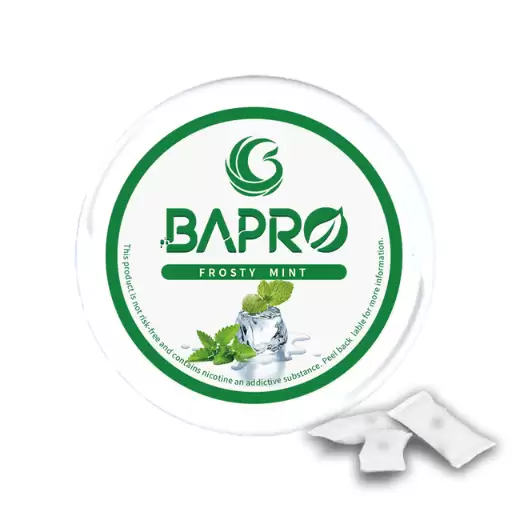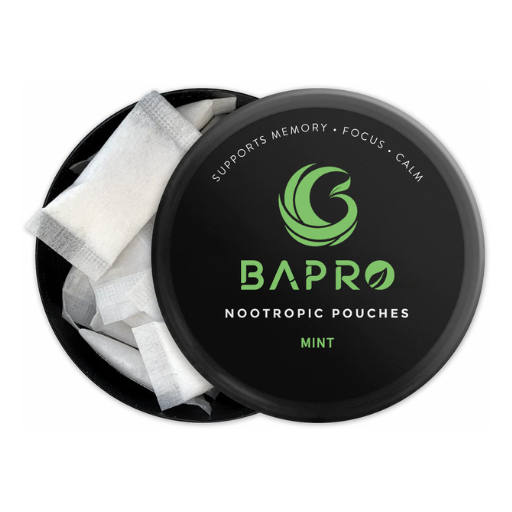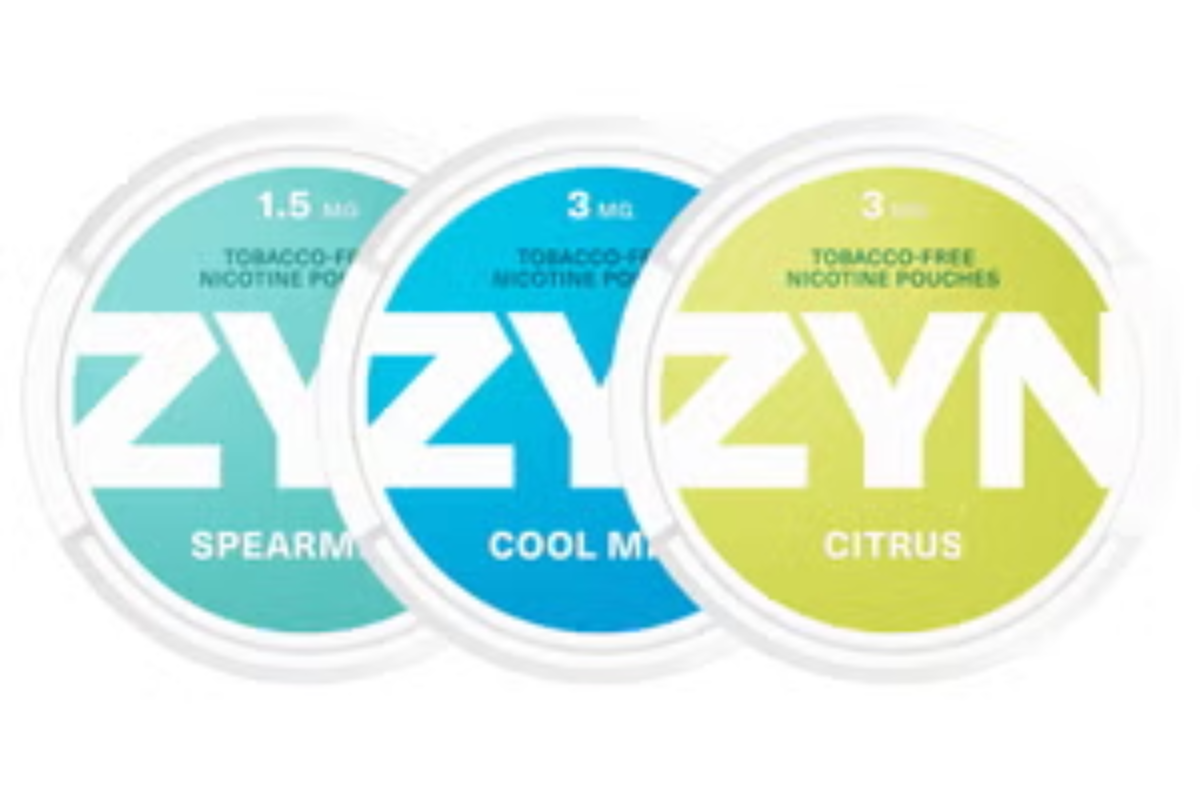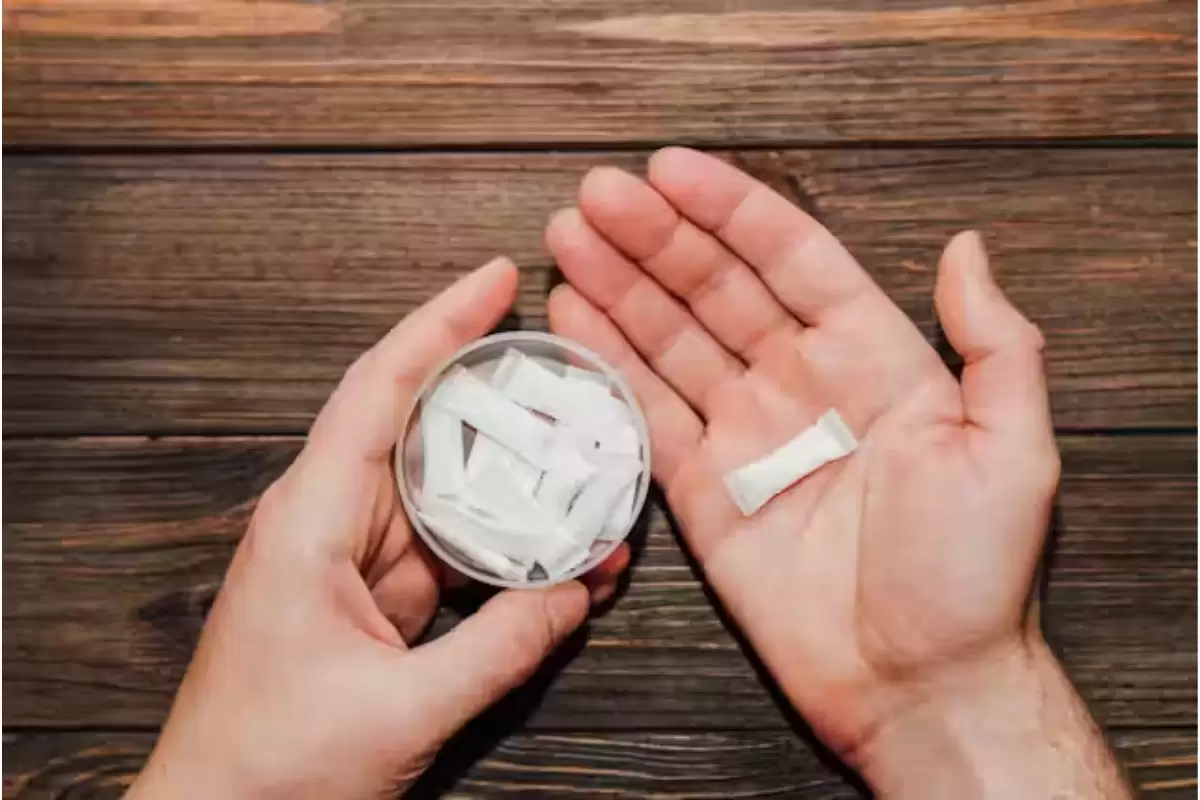After years of popularity gains, nootropic pouches are all the rage right now. We all want to perform at our best, so products that claim to improve focus, memory and cognition attract our attention. Nootropic pouches are easy to carry and consume, blending with busy schedules. To ensure we can take advantage of these mental-enhancing pouches in reputable ways, it’s valid to wonder about any potential side effects they might have, especially on oral health. Specifically, if nootropic pouches are used regularly, are they increasing people’s chances of ending up with cavities or other dental problems along with microscopic erosions of their tooth enamel?
The interface between us and our preferred nootropic pouches has many layers: it comprises the ingredients used to create these products, and how these ingredients may impact the microenvironment of the mouth as it interacts with the oral tissues. Let’s take a closer look at this topic to unravel such a complex matter. First and foremost, it is important to recognise that nootropic pouches are not a monolith: their composition to some extent can be found across different brands and formulations. Nonetheless, what cannot be ignored is the increasing dialogue surrounding their safety, including what such practices may signal when it comes to the implications for our oral health. Here, we enter a grey zone where health professionals and a few investigators have started to comment on the matter – but only to a small degree so far – offering anecdotal evidence and some initial findings from preliminary research.
Throughout this, our aim is to provide a complete picture of the issue, including the individual compounds that could be detrimental for the oral microbiome or enamel, as well as the broader implications of their use. With the aid of this article, readers should gain a better understanding of the relationship between oral health and nootropic pouches. By the end, they should feel like they’re on their way to a little insight.
Understanding Nootropic Pouches
Nootropic pouches… are a novel format for cognitive enhancement, containing several substances that are known to have nootropic effects. They are designed for sublingual absorption (that is, through the pocket under the tongue), thereby bypassing the digestive system and entering the bloodstream quicker than they would if consumed orally. This article will hopefully clarify the composition and philosophy of such a pouch.
At their heart is a mixture of nootropic compounds, sometimes called smart drugs or cognitive enhancers, ranging from natural substances like caffeine, L-theanine and Ginkgo Biloba to more synthetic compounds like Piracetam and Noopept, whose aim is to enhance one or more of the following: memory, creativity, motivation and concentration.
Some of the most commonly used ingredients in nootropic pouch recipes play an important role in the products’ effectiveness and their consequences for oral health. For example, the stimulant caffeine, one of the most widely used drugs in human history – and the most commonly found stimulant in nootropics – can increase alertness and focus. But it’s also an acid, and longer-term consumptions of beverages containing it and passively absorbed through the mouth have been associated with the erosion of the enamel of the teeth. (You may have experienced this yourself if you’ve ever sipped enough Diet Coke or coffee.) The amino acid L-theanine, often found in capsules, is another standout stimulant that’s often cited for its synergistic effects with caffeine. But while it may increase attentiveness and reduce anxiety in high doses, the associations of caffeine’s apparent benefits with the body’s smaller changes in pH when consuming L-theanine could be compromising your oral health if the acid together with the caffeine comes in contact with your teeth.
Understanding the specific ingredients and their concentrations in nootropic pouches is essential for evaluating their safety and effectiveness. While many of these components have been individually studied for their cognitive benefits, the combined effects of these ingredients, especially when administered through sublingual absorption, warrant further investigation. Additionally, the long-term implications of using nootropic pouches, particularly in relation to oral health, remain an area of ongoing research.(More knowledge:The Ultimate 2024 Guide: Europe’s Top 6 Nootropic Pouches for Cognitive Enhancement)
In summary, nootropic pouches offer a unique and effective means of cognitive enhancement, leveraging the power of various nootropic substances. However, as with any emerging health product, it is crucial to scrutinize their ingredients and potential impacts on the body, including oral health. The following sections will delve deeper into the relationship between nootropic pouches and oral health, exploring how these innovative products might affect the integrity of our teeth and gums.

Nootropic Pouches and Oral Health: An Overview
The emergence and popularity of nootropic pouches is a topic of increasing concern among consumers and healthcare providers alike. Among human oral cavity by means of approaches currently in pharmaceutical research and development.
Here we try to understand how nootropic pouches could affect oral health. Among them, a group of potential oral disease-inducing substances are discussed in this article. Since nootropic pouches are meant for sublingual absorption, the active ingredients penetrate straight into the oral cavity without encountering the digestive system. On the plus side, this mechanism of action guarantees fast sublingual absorption (when pharmacologically suitable) – but things could very well take an ugly turn in terms of oral health.
The most common ingredients in nootropic pouches include stimulants such as caffeine, amino acids and artificially produced sweeteners. For example, caffeine is acidic and could, over time, lead to loss of enamel when exposed to it regularly. Enamel, after repeated exposure to acidic environments and compounds (reminiscent of a tooth subjected to plaque acids), becomes eroded, less resilient and more vulnerable to decay. Another characteristic of most nootropic pouches is the widespread use of artificial sweeteners to make the liquids more palatable. Sweeteners, despite not causing cavities like sugar does, can alter the oral microbiome to a point where more cavity-causing bacteria have an edge.
The effects of amino acids and other science-fiction purpose cognitive-enhancers on the mouth are not as straightforward. Some of these drugs can impact saliva production and mouth pH – two key factors that are crucial for the integrity of the oral cavity. Saliva is part of the gentle yet effective self-care system humans possess, keeping teeth clean, penetrating hidden pockets to eliminate oral bacteria and neutralising the acids produced by them. Any change in saliva production or composition could therefore have implications on the teeth and gums. Also the frequency and duration of use of nootropics pouches must be taken into consideration.
Repetitive consumption of the contents of the pouches could aggravate the effects of the ingredients and have more impact on oral health. This area therefore requires further investigation and awareness. However, these are just possible warnings and, generally, there is no available solid evidence linking nootropic pouches directly to cavities or other oral health problems, at least not at this point. The second section will discuss the available evidence in depth, considering whether or not a clear relation between nootropic pouches and cavities exists, based on the results of scientific studies and what experts on the matter have to say about it.
Investigating the Evidence: Do Nootropic Pouches Lead to Cavities?
Whether nootropic pouches might be detrimental to oral health, particularly to promote cavities, has set the science and general consumption community at odds on the matter. This section reviews the data and those results to determine if there is evidence supporting that these pouches foster cavities, or not. The question, verbatim: Does consuming nootropic pouches promote cavities?
The research specifically regarding the oral health effects of nootropic pouches is minimal. Yet we can make some tentative findings by looking at the properties of the common ingredients within these pouches and how they’ve been known to affect the mouth. Most studies have concentrated on the wider implications of these compounds, such as caffeine and artificial sweeteners, when it comes to dental health, and suggest findings that could be applicable to nootropic pouches.
Another issue that’s been identified is the acidity of some of the nootropic ingredients. Caffeine is a typical ingredient of nootropic pouches that has been found to cause erosion of dental enamel in a variety of studies. Once the enamel layer is breached, an erosive process can lead to sensitivity and cavities. The artificial sweeteners and flavouring agents that some nootropic pouches add can also make the mouth less acidic, making it more agreeable for cavity-causing bacteria.
Still, any worries about nootropic pouches shouldn’t rule out a cautionary look at the ingredients used and how long people are exposing their teeth and gums to them. Cavities and dental-enamel erosion depend largely on frequency of use and how closely users maintain an oral hygiene regimen: anyone who regularly brushes and flosses, for example, might do a better job of mitigating the risks posted by these substances.
In addition, experts say that the benefits of nootropic pouches on cognition and overall productivity could be a significant factor if the risk to oral health or discolouration was manageable. For example, simple steps like flossing could reduce the risk to retain the benefits of nootropic energy.They also argue that we clearly need more research to link nootropic pouches and cavities directly to each other (for example, we need to know whether dental care eliminates the risk) and said that they would recommend a balanced way to use them.
Overall, despite interesting theoretical and epidemiological/correlational evidence suggesting nootropic pouches could contribute to the risk of oral diseases such as caries, the direct scientific evidence is quite meagre. Until we have more direct empirical evidence, nootropic-pouch users ought to be aware of these risks, and is certainly appropriate/advisable for them to build preventive elements into their nootropic pouch use routines (part of which is outlined in the next section).
Preventive Measures and Recommendations
With the various oral health concerns attached to nootropic pouches, it is crucial for the users to take the necessary steps towards mitigating its adverse effects. While advertising the cognitive benefits, we ought to also ensure that they don’t compromise the oral health. This part highlights user guidelines and recommendations to ensure the integrity of their oral health by using nootropic pouches.
Maintain Regular Oral Hygiene Practices
Independent of the use of dental nootropic pouches, along with scheduled dentist visits, good hygiene is the most important part of oral care. Brushing twice a day with a fluoride toothpaste, flossing once a day to remove plaque from between teeth and under the gum line, and applying an antiseptic mouthwash to combat the bacteria that cause plaque and bad breath are essential. These methods can potentially be used to remove any residues that might remain in the mouth after use of the dental nootropic pouches.
Rinse After Use
Finally, users should rinse with water as soon as they’ve finished using a nootropic pouch in order to quell any acids or sugars that might be left behind, stopping them in their tracks before they can cause trouble to the enamel and internal structures of the teeth. Rinsing with a saliva-increasing mouthwash might allay any dry mouth or changes to saliva flows.
Regular Dental Check-ups
Paying regular visits to a dentist is essential for proper oral care. There, early signs of damage such as ear or enamel corrosion from persistent use of nootropic pouch can be spotted. Thus, a dentist can proactively prescribe an oral care regimen and advise patients select among many teeth products tailored to their particular needs.
Consider the Timing of Use
Timing use for when you will be able to brush afterwards, such as in the morning with breakfast or in the evening near bedtime, also makes sense so that any oral threats are eliminated quickly.
Stay Hydrated
Staying hydrated with lots and lots of water helps keep your mind and body healthy. Saliva acts as a natural restraint to tooth decay and gum disease, which you darn well want to keep handy if you’re putting potentially hard-hitting nootropic chemicals up against your teeth. Hydration will also help flush any debris or offending substances from your mouth and help to dilute anything that shouldn’t be up there.
These preventive measures will help reduce the impact of nootropic pouches on oral health while not negating their cognitive benefits. We need to strike a balance between the quest for better cognitive function and the need to keep the mouth healthy, so that satisfying brainpower doesn’t come at the expense of teeth.












